SpaceX vs. the world
Saturday, 18 December 2021 08:20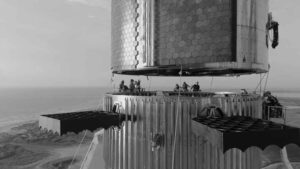
SpaceX has legions of fans worldwide cheering every minor development. And yet, at times, it can seem like the whole world is taking on SpaceX as the company expands from launch vehicles to satellite broadband to lunar landers.
JWST launch rescheduled for Dec. 24
Friday, 17 December 2021 22:22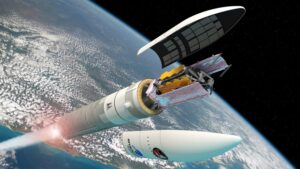
With a communications glitch resolved, NASA and the European Space Agency have rescheduled the launch of the James Webb Space Telescope on an Ariane 5 for Dec. 24.
NASA confirms next Friday for Webb Space Telescope launch
Friday, 17 December 2021 16:50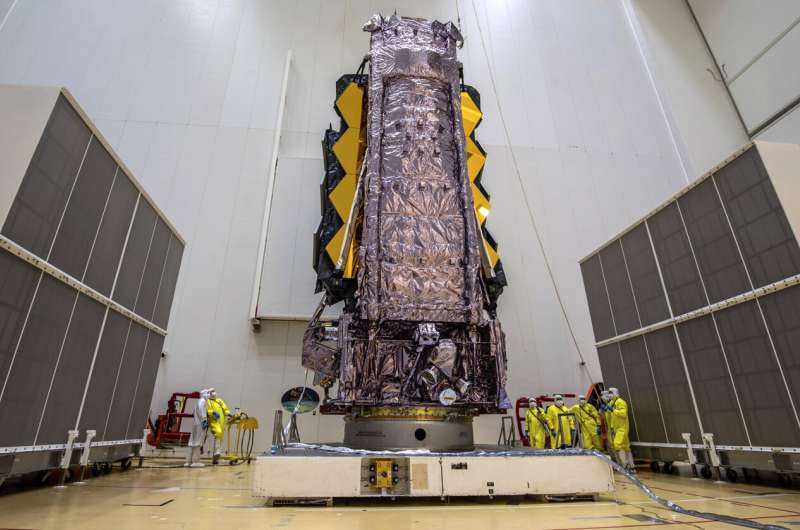
FAA: Georgia spaceport decision near, but more study needed
Friday, 17 December 2021 16:50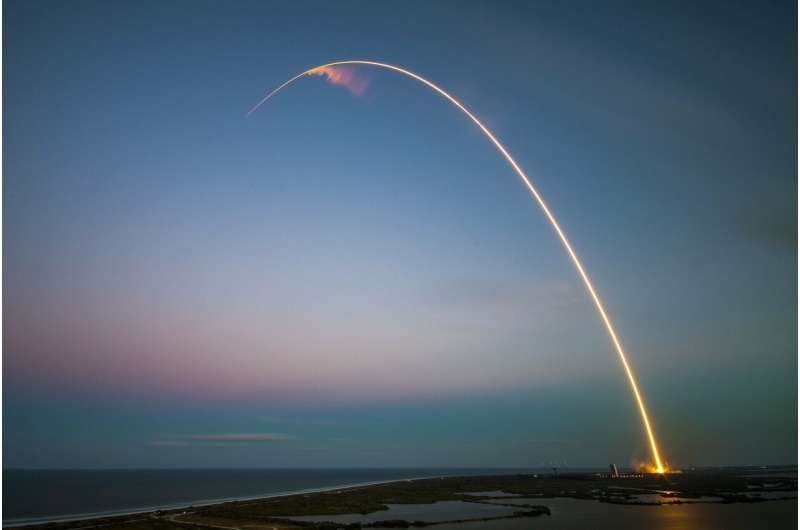
A federal agency expects to announce its decision Monday on whether to allow a launchpad that would send commercial rockets into space from coastal Georgia.
However, the Federal Aviation Administration is emphasizing that a license authorizing Camden County to operate a spaceport would not yet permit the launch of any rockets.
In a letter released Friday by the FAA, the agency said a more comprehensive review would be needed before any rockets can be launched from Georgia.
Even if the license for Spaceport Camden is approved, "it would not authorize a single launch," an FAA executive wrote to the U.S. Department of the Interior.
"Simply put: to obtain a Vehicle Operator License, many more reviews remain, and no outcome is guaranteed," the letter stated.
Any company seeking to launch from the site would need to obtain a Vehicle Operator License and undergo a separate environmental and safety evaluation, according to the FAA.
Camden County, in the southeastern corner of the state, has spent nearly 10 years and $10 million pursuing the goal of having what would be the nation's newest commercial spaceport.
Investing recovery and resilience funds in space projects
Friday, 17 December 2021 16:38
Green and digital transition in Europe will benefit from ESA expertise that supports national plans for investing recovery and resilience funds in space projects.
At the 303rd ESA Council meeting in Paris on 15 December 2021, ESA Member States took the decision to further the role of ESA as provider of expertise in support of national space plans, in particular in order to accompany the investment of Italian recovery and resilience funds in space programmes.
Op-ed | A global model for tackling space sustainability and safety
Friday, 17 December 2021 16:01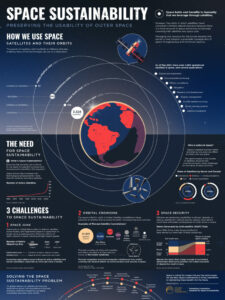
While international agreements such as the Outer Space Treaty and the Registration Convention take steps to protect near space, no single global body is responsible for ensuring the long-term sustainability and safety of this precious resource.
Paving the way to thriving in space
Friday, 17 December 2021 15:50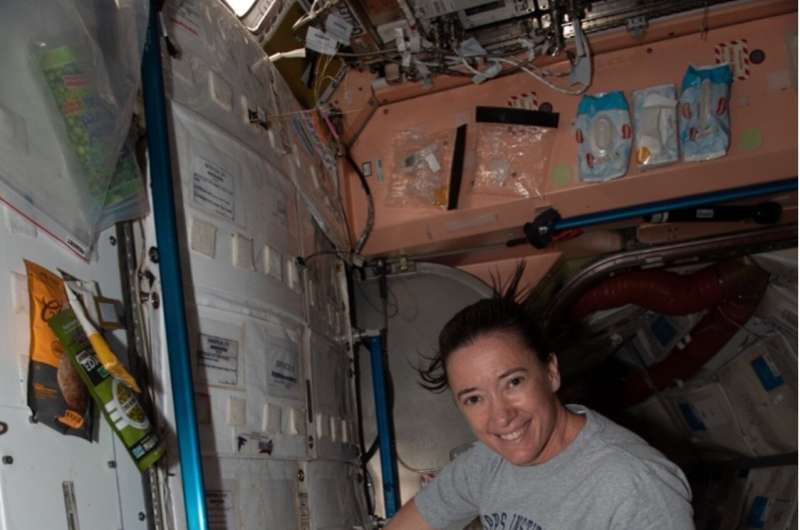
In late December, SpaceX-24 will deliver a payload to the International Space Station. Three new experiments that will help scientists better understand specific biological and physical phenomena will be on board.
"It's really exciting when we get to conduct new investigations aboard the Space Station," said Dr. Craig Kundrot, Director of NASA's Biological and Physical Sciences Division. "What these three experiments have in common is each will contribute fundamental scientific insights that will both enable our astronauts to thrive on their future long-range missions and provide tangible benefits to people on Earth."
Growing plants in harsh conditions:
The Plant RNA Regulation Redux in Multi Variable Platform (MVP-Plant-01) experiment will profile and monitor a plant's shoot and root development under microgravity conditions. The results of this experiment will help scientists better understand the molecular mechanisms and regulatory networks behind how plants sense and adapt to environmental changes. Ultimately, the findings could help scientists design plants that will be able to withstand adverse environmental conditions, both during long spaceflights and here on Earth.
Malaysia outlines national space blueprint with focus on remote-sensing satellite development
Friday, 17 December 2021 13:54
During a Dec. 13 parliamentary hearing, a deputy minister shared the latest update on the “Malaysia Space Exploration 2030” blueprint being fleshed out by Malaysia’s Ministry of Science, Technology and Innovation.
Year in images 2021
Friday, 17 December 2021 13:22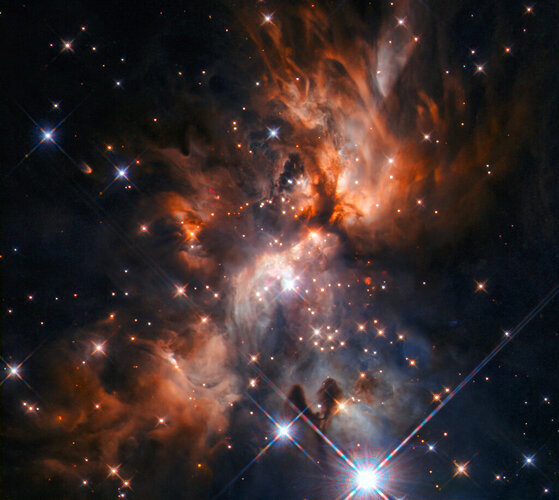
Year in images 2021
Our year through the lens: a selection of our favourite images for 2021
China’s new rocket for crewed moon missions to launch around 2026
Friday, 17 December 2021 11:34
A new heavy-lift rocket designed to be capable of sending Chinese astronauts to the moon could have its first flight in 2026, according to a senior engineer.
Press briefing Webb Telescope
Friday, 17 December 2021 10:00 Video:
00:45:03
Video:
00:45:03
Replay of the 16 December 2021 online press briefing about the James Webb Space Telescope.
Speakers:
- Günther Hasinger, ESA Director of Science
- Daniel Neuenschwander, ESA Director of Space Transportations
- Thomas Zurbuchen, NASA’s Associate Administrator for science
- Antonella Nota, ESA Webb Project Scientist
- Gillian Wright, European Principal Investigator for the MIRI instrument
Developed and constructed over more than 30 years, Webb is a remarkable feat of engineering and technology – with the largest astronomical mirror ever flown in space, sophisticated new scientific instruments, and a sunshield the size of a tennis court.
Webb is designed to answer outstanding questions about the
Earth from Space: Kourou, French Guiana
Friday, 17 December 2021 08:00
Ahead of the upcoming Ariane 5 launch of the James Webb Space Telescope, the Copernicus Sentinel-2 mission takes us over Kourou – home to Europe’s Spaceport in French Guiana, an overseas department of France.
DiCaprio and Lawrence big up science in doomsday comedy
Friday, 17 December 2021 07:10 For Hollywood A-listers Leonardo DiCaprio and Jennifer Lawrence, their new end-of-the-world comedy was a chance to send a little respect back to scientists.
In "Don't Look Up", released on December 24 on Netflix, they play two astronomers who discover a comet will wipe out life on Earth within six months, but then try in vain to get politicians and the media to take the threat seriously.
For Hollywood A-listers Leonardo DiCaprio and Jennifer Lawrence, their new end-of-the-world comedy was a chance to send a little respect back to scientists.
In "Don't Look Up", released on December 24 on Netflix, they play two astronomers who discover a comet will wipe out life on Earth within six months, but then try in vain to get politicians and the media to take the threat seriously. Launch of GeeSAT commercial satellites fails
Friday, 17 December 2021 04:49 The launch of a pair of GeeSAT commercial satellites, carried by a Kuaizhou-1A carrier rocket, was unsuccessful, the launch center said in a statement Wednesday.
Abnormal performance was detected during the flight of the rocket, which lifted off from the Jiuquan Satellite Launch Center in northwest China at 10 a.m. (Beijing Time).
The cause of the failure is under investigation, acco
The launch of a pair of GeeSAT commercial satellites, carried by a Kuaizhou-1A carrier rocket, was unsuccessful, the launch center said in a statement Wednesday.
Abnormal performance was detected during the flight of the rocket, which lifted off from the Jiuquan Satellite Launch Center in northwest China at 10 a.m. (Beijing Time).
The cause of the failure is under investigation, acco 

